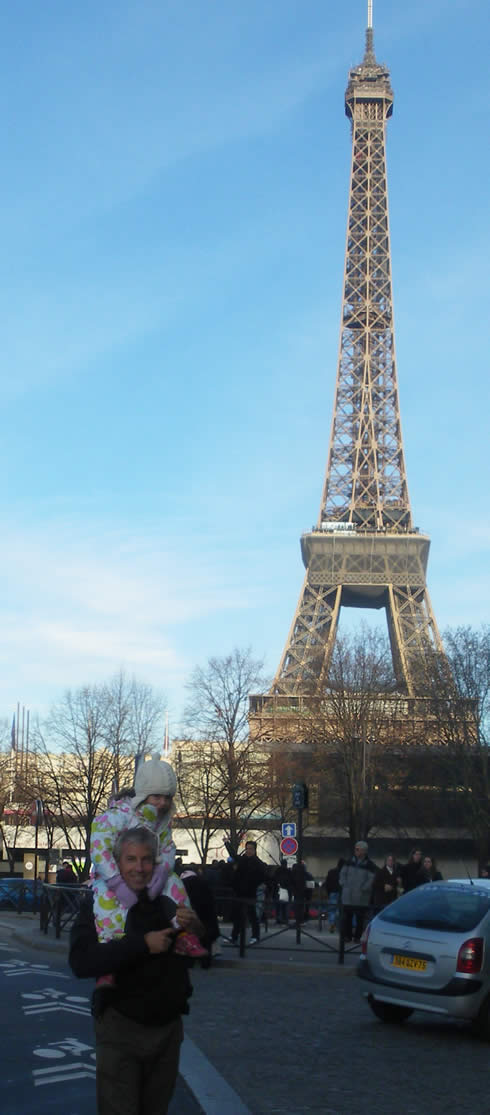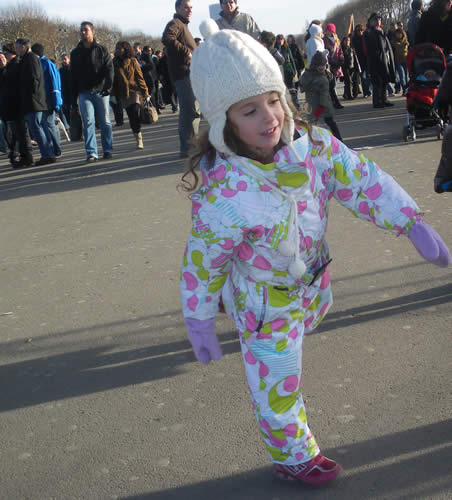|
InteGRATion into
GRATeFULLness
Singing&Sounding keeps me Sound
![]()
Then your light will break forth like
the dawn,
| 2007_02_08 2010_09_09-10 |
|
|
Then your light will break forth like the dawn, and your light will rise in the darkness, The LORD will guide you always;
|
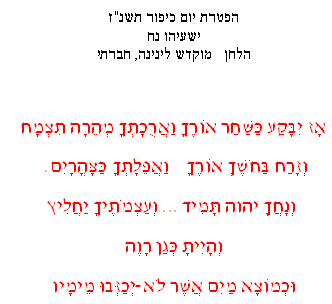 |
Dann dringt dein Licht hervor der Morgenroete gleich, eilends waechst deine Wundhaut zu, .... da strahlt dein Licht in der Finsternis auf, sonnenhoehgleich wird dein Duester, stetig geleitet dich ER, ... ermuntert dein Gebein, dass du gleich wirst einem erfrischten Garten, einem Wasserborn gleich, dessen Wasser nie versagt. [Buber-Rosenzweig: Verdeutschung der Schrift] |
"ONEG"
2010_09_09-10
Second part of the Haftarah-text - as second stanza
to the tune above
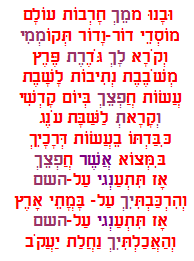 |
I always found the last lines too
cumbersome, |
| Isaiah 58:12-14 12
And they that shall be of thee 13
If thou turn away thy foot because of the sabbath, 14
Then shalt thou delight thyself in the LORD,
|
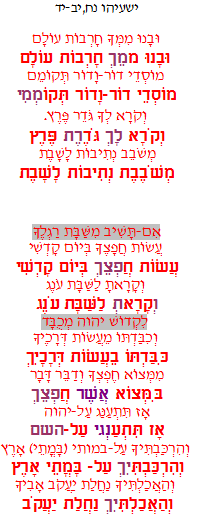 |
Jeschajahu 58:12-14 |
|
Explanations
to my "falsification" of the biblical text: On Rosh-Hashanah, Sept. 9, 2010, I wanted to bless my friend Yanina. Thinking of her life I remembered, how the inspiration to this song came to me following a talk with her husband and her about this text in her house in 2006. Re-studying Isaiah 58, I felt like adding the same tune to the rest of the chapter. The coercion of adapting the syllables of the verses 12-14 to the existing tune demanded some changes, and this demand caused me to think deeper into how those verses were relevant for me now. The obvious and drastic change had to be made in the concept of "Shabbat"... But what was also"demanded" from me, (though not showing in the translations) was to convert the male addressee into a female addressee. Only after I had rehearsed the new version some 30 times, did I understand, that it does, indeed, address a feminine mythical figure, the "nakhalat Ya'acov". I do not want to translate this metaphor, but rather convey its meaning: "Israel". The double meaning : Israel as a collective and individual members of Israel is the same as in the 4 Songs of "The Lord's Servant", most of all in the 4th song: In the figure of Isaiah 53, Christians see in it one individual Jew: Jesus. while Jews see in it the nation of Israel through all its holocausts. Scientists, of course, see in it the unknown author of the songs. |
**)
My understanding of this line is this: Man wird bauen - von dem was du bist -der Welt Truemmer! *) If I could point out to Buber, that he failed to find the common root in German for the noun "'oneg" [delight] and the verb "titaneg" [delight yourself] and instead used two totally different words: "Erquickung" and "du wirst dich laben", he would say: "yes this is one of many things that need to be corrected in the next edition", as he said, when I pointed out to him in 1961, that the word "me'il" = coat or robe - so vitally symbolic in the drama of Samuel-Saul-David-Jonathan, who all are mentioned to have worn or given away a me'il was translated by Buber-Rosenzweig differently in different contexts: 1.Samuel 2:19-"Kittel", 1.Samuel 15:27-28: "Manteltuch" 1.Samuel 18:4 "Kittel", 1.Samuel 24:4 "Mantel", 24:11 twice: "Kittel", 1.Samuel 28:14 "Manteltuch", 1.Chronicles 15, 27:" Mantel" ; 2.Samuel 13:18-Mantel - the clothing of Tamar, the virgin!!! ] |
Rosh-Hashanah, Sept. 9-10, 2010
(updated on April 14, 2012)
My and "God's" ONEG-SHABBAT is to
create a space of time and place,
few actions (walking, working, etc) and only "light" interactions.
In this space of time-place it is possible to become aware of my DESIRE,
as it swings and sways and changes from moment to moment,
just like little Mika lives
a day or an hour or 5 minutes in her life.
Desiring, dreaming, intending, even planning,
but if possible, letting go, when a more exciting desire comes up!
This way of life is so opposed to my obsession with completing something I
started,
leave alone my obsession with investing superhuman efforts in "saving
the world",
that I need the Shabbat to train myself - with no coercion-whatsoever "to
function",
so that during the week, when sometimes I DO have "to function"
I'll always be able to return to ONEG SHABBAT
This is meant by :
"and Ha-Shem will guide you always"
in the first stanza of the song (2006)
So far I have focused on "feeling
all there is to feel",
"breathing-moving-sounding"
all that's difficult to feel,
"inhaling
God and exhaling love to whatever I feel just now".
But "WILL" is not only
Feeling,
it is first of all God's DESIRE,
[for
instance:
"The name I know
her by is 'Desire'." ]
and nothing would exist, nothing could manifest, if there was not first a
DESIRE.
For the last 33 years I've been healing my feeling to a great degree ,
I'll now pay/play attention to my desires,
learning from Mika,
in whose footsteps I've been priviledged to walk closely for already 3 3/4
years!
Later today, Sept.9, 2010:
I remembered what Yehoyada, an entity who channels
through Na'omi
Hefetz
[See
an article about the phenomenon of channeling in Israel, in which also
Na'omi Hefetz is mentioned]
said to me - via phone - perhaps in 2003 (Noah's
Shore realization attempt):
"In another dimension it already exists, what you desire and work for:
there is an entire tribe of more than 10000 engaged in your vision!
You can simply le-hitaneg - delight!"
I was not ready then to simply delight in desiring,
but I seem to be ready NOW!
(What a coincidence: "hefetz"
is the decisive word in the passage about "Shabbat - DELIGHT!
except that in this biblical context "hefetz"
is negative, unlike in the
song of The Lord's Servant:
"and hefetz Ha-Shem - HIS desire - will succeed
through your hand" )
(Today I was led to understand more about multidimensionality
- Julia's message)
Sept.
11, 2010 More about hefetz... I see the danger and lack in the concept of "doing your delight", "by doing your ways" if the line : by finding what is your desire, is not greatly stressed! What happens already to a five-year-old , is, that suddenly his/her fountain of desires dries out! What once delighted the child, no longer delights him! Therefore the middle-world of my "Conditions for Heaven-on-Earth" is grate-full-ness, zest - full - ness, full-fill-ment! I just discovered my page "Learning to Want", Aug. 2007! |
This
was brought home to me this morning by a passage in "Niels Lyhne" [the one book which - except for the Bible - molded Rilke in his life, as I now read again in "Letters to a Young Poet"] p. 20 "None of the mental problems of finer artistic enjoyments that he encountered stirred him to any zeal or desire whatsoever. He had simply striven with them in a painstaking effort which was never brightened by joy in feeling his own powers unfold or pride in finding them adequate. Mere satisfaction in a task accomplished was the only reward that came to him. [I still haven't found an answer to my problem since 1987, when I drove my bus to the desert, "in order to experience total aloneness". I was stunned to realize, that I was never lacking desires! But what to do, if there are 2, even 5 desires at once? For instance now: I want to explore the 128 context , in which "hefetz" appears in the Bible - as noun or as verb. But I also want to read "Niels Lyhne", which is now on-line (unlike some 50 years ago, when I read Rilke's letters to a Young Poet for the first time) |
Sept.13, 2010
There is still something missing in the context of hefetz:
the balance between knowing my desire and living my desire and full-filling
my desire,
(by the way, both "God" and Rilke have said something important
about the value of desire, even if it is not fulfilled)
To this balance also belongs the acceptance of the empty spaces in between,
the feeling of not wanting to desire anything , leave alone full-fill a desire.
Something else: the strange expression of "I let you ride on the heights
of the land".
It appears just like that in the famous poem/song of "Ha'azinu",
put in Moses' mouth.
And there, too, is a connection between this "riding on heights"
and "being fed the best".
| A
poem about how YHWH once cared for Israel, but how they kicked against it: Deuteronomy 32:10-15 [I'm glad, that at least this passage is in the Torah and therefore can be found in the translation, which Fox prepared according to the Buber-Rosenzweig's and my understanding of the Hebrew Bible. 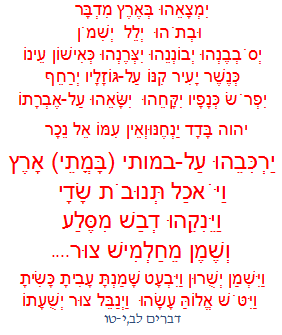
He found him in a wilderness land, in a waste, a howling desert. He surrounded him, he paid-him-regard, he guarded him like the pupil of his eye; like an eagle protecting its nest, over its young-birds hovering, he spread out his wings, he took him, bearing him on his pinions. YHWH did lead them, not with him any foreign god! He had them mount on the high-places of the land, he fed them the crops of the field; he suckeld them with honey from a boulder with oil from a flinty rock ... But Yeshurun grew fat and kicked you were fat, you were gross, you were gorged, he forsook the God that made him, and treated-like-a-fool the Rock of his deliverance. |
The
probably oldest usage of the metaphor appears right at the beginning of one of the oldest prophets: Micah, 7th century [Micah 1:1-5] but in this case it is used with irony and wrath: 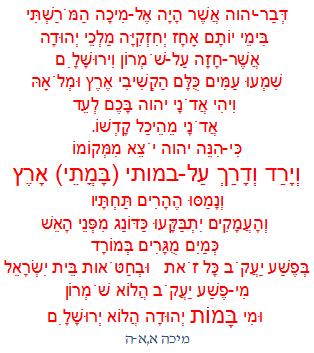
The word of YHWH that came to Micah the Morashtite in the days of Jotham, Ahaz, and Hezekiah, kings of Judah, which he saw concerning Samaria and Jerusalem Hear, ye peoples, all of you; Hearken, O earth, and all that therein is; and let the Lord YHWH be witness against you, the Lord from His holy temple. For, behold, YHWH cometh forth out of His place, and will come down, and tread upon the high places of the earth And the mountains shall be molten under Him, and the valleys shall be cleft, as wax before the fire, as waters that are poured down a steep place For the transgression of Jacob is all this, and for the sins of the house of Israel. What is the transgression of Jacob? is it not Samaria? And what are the high places of Judah? are they not Jerusalem? |
but I don't deem this important or helpful for understanding the two later contexts.
The "bamot" were those infamous places where people sacrificed to other gods.
[see an English article about "bamot" in Wikipedia]
Or is it important, after all?
Does the combination of "riding on the heights of the land"
in the two much later contexts
(not only the Deuteronomy
but also the so-called "Deutero
Isaiah" [from ch. 40 onward]]
were written only during or even after the
Babylonian exile,
according to the scientists and also according to my own research)
mean, that "the heights" are YHWH's territory,
and as in the glorious time of the desert (Jer.2!),
so in the glorious future,
he'll take you with you, letting you ride with pride
above what were once the "places",
where you stumbled to your death?
![]()
|
2009_12_31
- Mika's Heaven on Earth
I follow my understanding and new lekh-lekhâ on January 1, 2009, that - after 7 years - I should no longer create new pages on my 2 websites, but intermingle the evidence of new experiences with that on existing pages. On August 1, I decided to re-employ song-page after song-page for documenting and exploring the evolution of my youngest grandchild, a starchild whose assignment for this planet seems to be: to demonstrate by her own living and doing, how to playfully create from moment to moment "zest-fully and full-filled" [see previous composition] |
|
Immanuel's family + Grandma: photos taken
by Immanuel on Arnon's Bar-Mitzva Celebration, Nov. 2009
Elah, my eldest granddaughter, and Mika, my youngest - Elah and her brother Alon
Tomer gives his stepmother a good massage (I'm seen on the right, and behind me Joel and Hadass)
Apropos Tomer! Let's return to the beginning
of this crowded month: Chanuka!
F
Before the holidays - Chanuka was celebrated
in Mika's kindergarden.
Mika does not forget her pilot father
|
|
Continuation of Mika's
"Heaven-on-Earth" , in December 2009, on the
Song page of February 9, 2007 |
…..

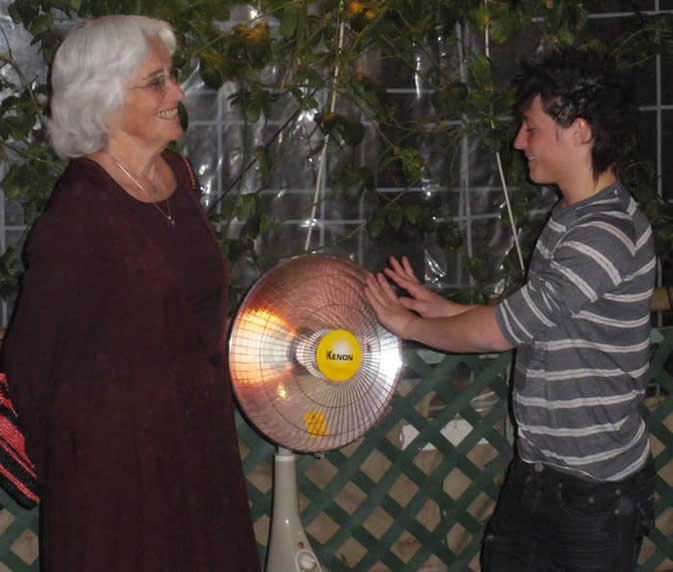
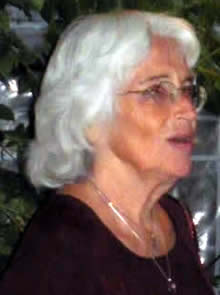
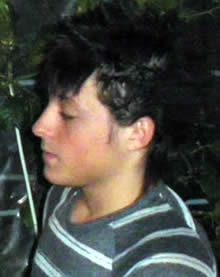
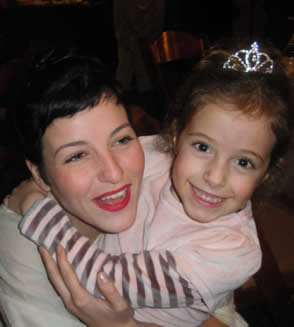

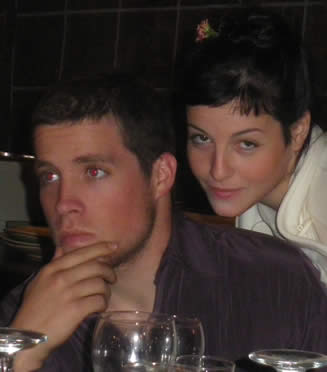
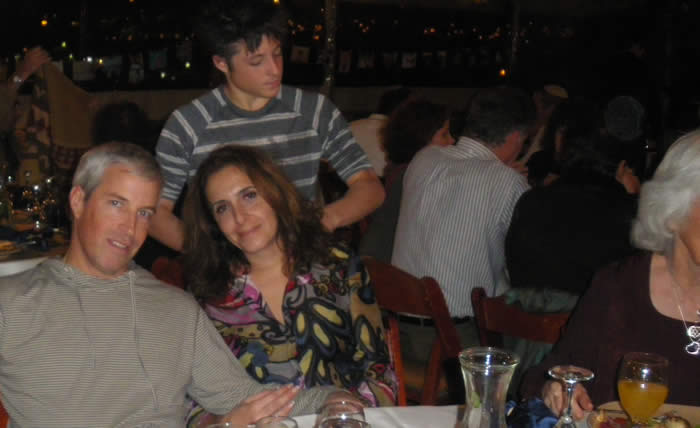
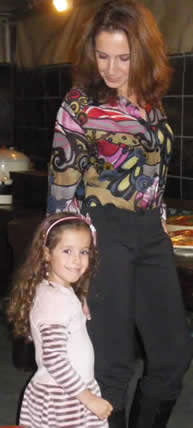


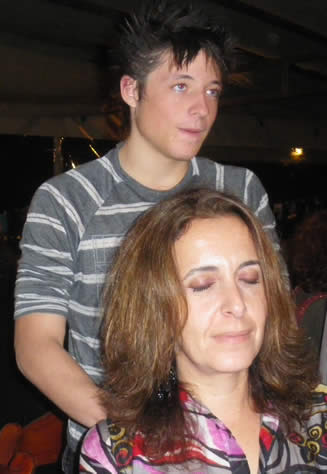




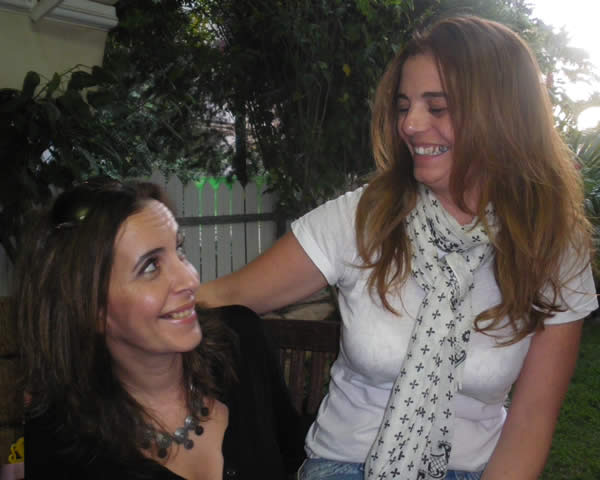
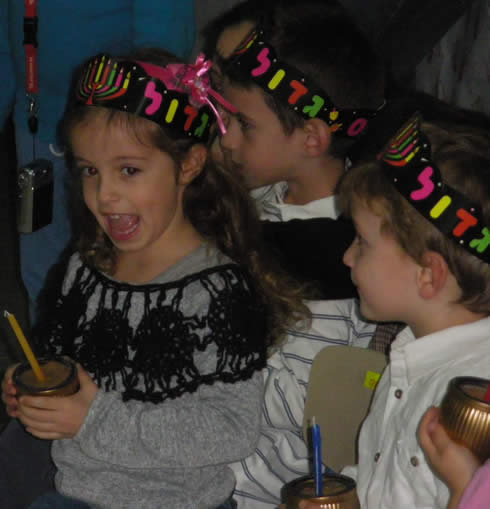

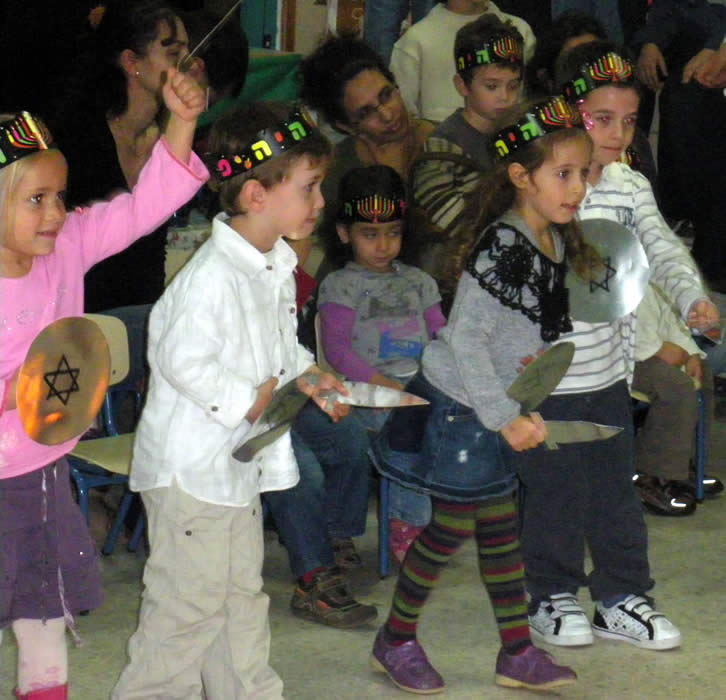
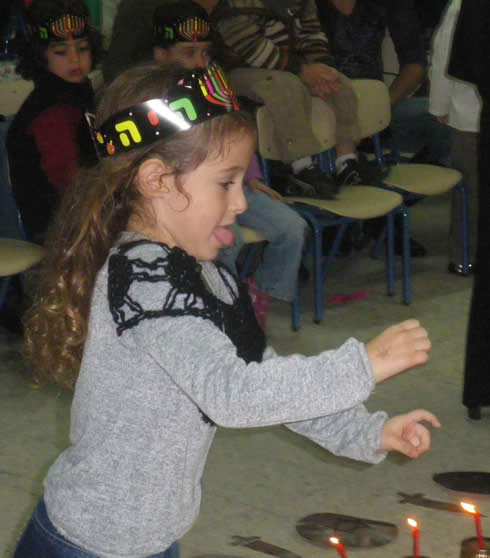
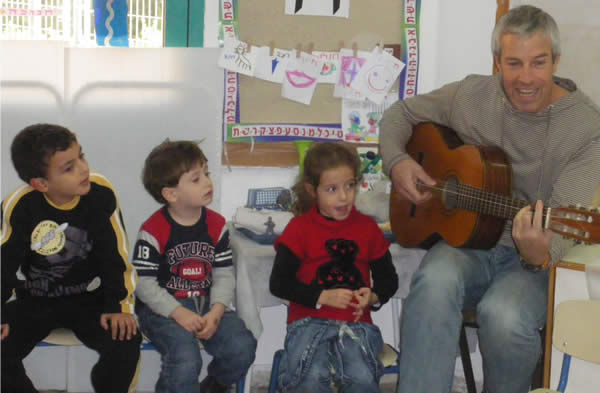
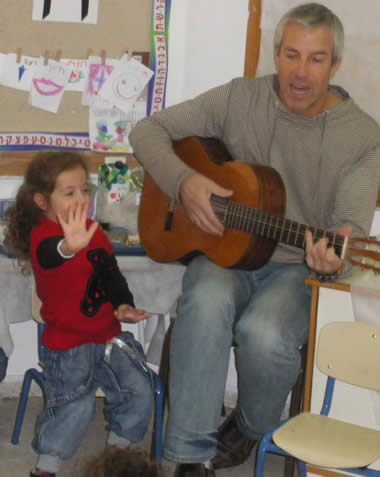
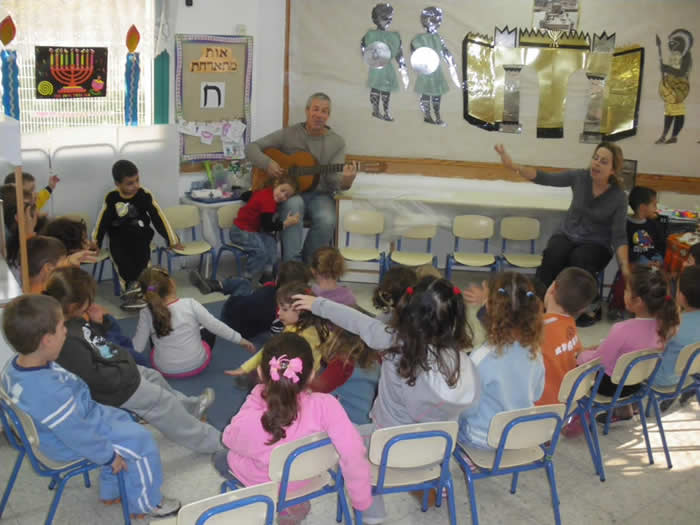
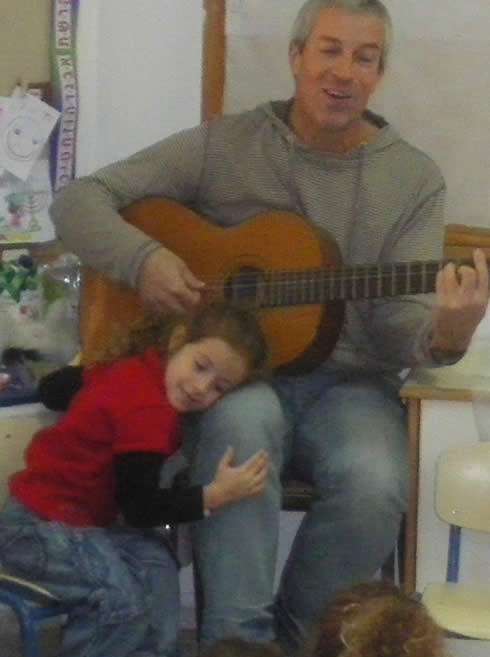
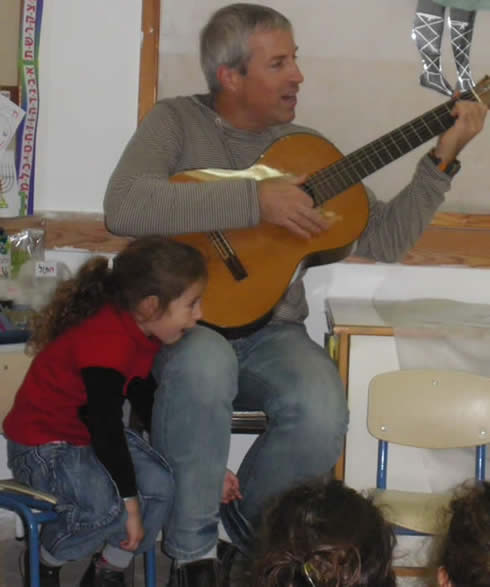


 ll
ll
